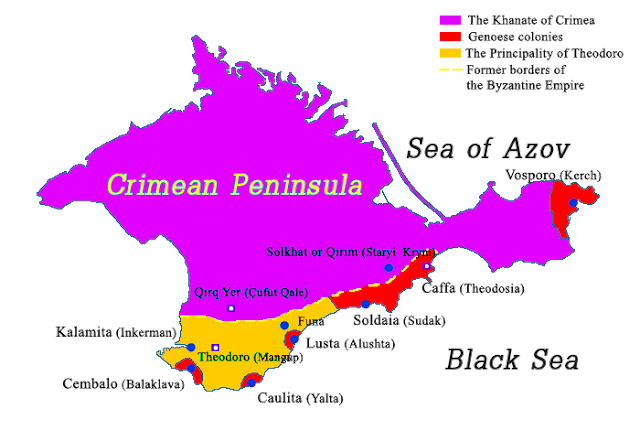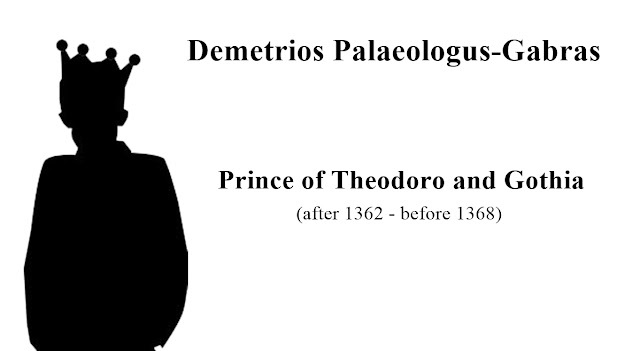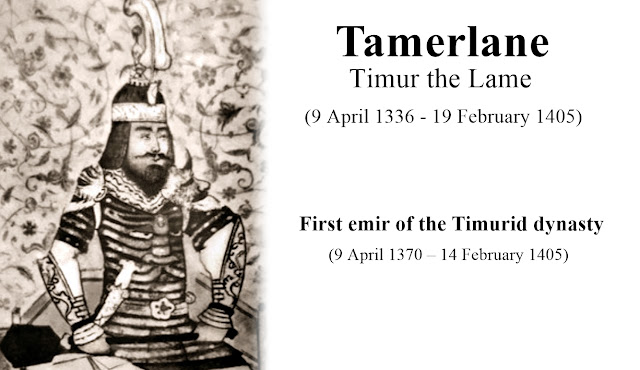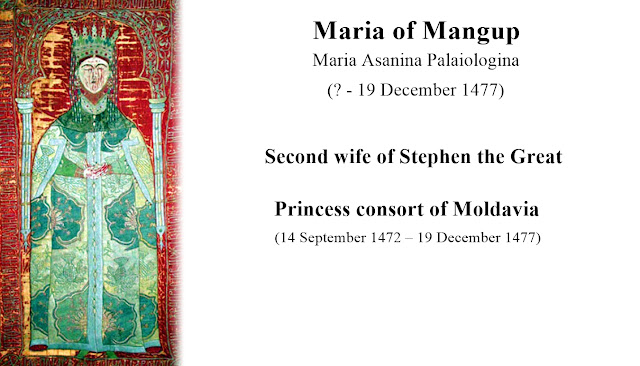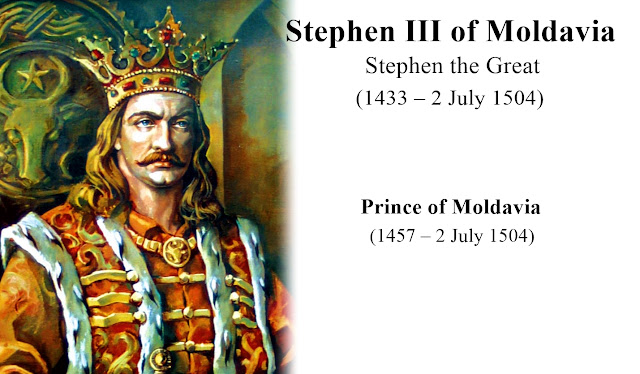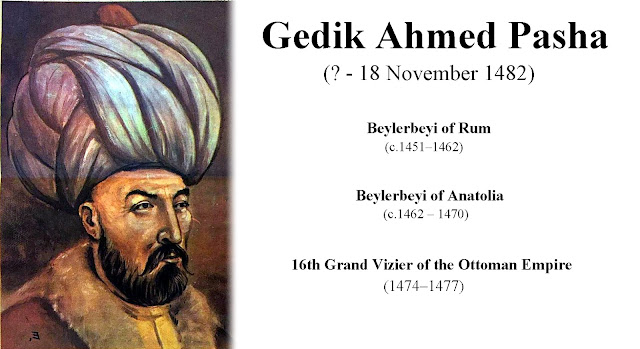Tuesday, April 11, 2023
Principality of Theodoro (Mangup) - the last Byzantine state
The Principality of Theodoro also known as Gothia, or the Principality of Mangup, was a small, Christian feudal state in the southwestern part of Crimea, which existed from the 13th century to the 15th century. Its capital was Doros, also sometimes called Theodoro and now known as Mangup.
Gothia's population was a mixture of Greeks, Crimean Goths, Alans, Bulgars, Cumans, Kipchaks and other ethnic groups, most of whom were adherents to Orthodox Christianity and Hellenized. The principality's official language was Greek.
The principality was a successor state of the Byzantine Empire, and was formed at the beginning of the 13th century from that part of the former Byzantine theme of Kherson in the Crimea, which had not become a colony of Genoa.
In 1204, during the fourth crusade, the Venetians seized the best Byzantine ports: Cembalo, Soldaia and Caffa. The remainder of the theme falls to the Greek Empire of Trebizond (located on the other side of the Black Sea, and ruled by the Komnenos, then, in 1235, to the Greek Empire of Nicaea (governed by the Paleologues).
This dependence was never very strong and was eventually replaced by the invading Mongols, who in 1238 poured into the peninsula, occupied its east and enforced a tribute on the western half, including Gothia. Apart of said tribute their influence was limited, leaving administrative matters in native hands.
Mongol Khagan Möngke grants Caffa, Chimmero and Vosporo to the Genoese. Then, the Genoese obtained two other ports, Lusta and Caulita, in 1315 from the Greek Empire of Nicaea, in exchange for loans.
During this period, besides the Greeks of the Black Sea, Cherkessogais Armenians populate the region, as evidenced by the presence of many churches and Armenian monasteries such as that of the Holy Cross of Sourkhat.
In 1362, Demetrios Palaeologus-Gabras, founded The Armenian-Byzantine ruling dynasty of the Gabras, which was related by marriage with the Komnenos and the Paleologues. They bore the title of "Prince of Theodoro and Gothia". This dynasty makes of Theodoros an independent principality, which resists the Tatars and disputes with the Genoese the control of the coast.
In 1395 the warlord Tamerlane invaded the Crimean peninsula, destroying several towns including Gothia's capital Theodoro. After his death in 1404 the Principality of Theodoro grew to become one of the most significant powers of the Black Sea, profiting from a period of Genoese instability and its neglect of its Black Sea colonies, but also the rise of the Crimean Khanate. In 1432 the Principality of Theodoro sided with Venice against Genoa due to the latter's promise to grant them access to the sea.
The principality had peaceful relations with the Golden Horde to its north, paying an annual tribute as vassals, but was in constant strife with Genoese Gazaria colonies to the south over access to the coasts and the trade that went through the Crimean harbours. A narrow strip of the coastal land from Balaklava in the west to Alushta in the east initially part of the principality soon fell under Genoese control. After they had lost harbours on the southern coast Theodorites built a new port called Avlita at the mouth of the Chernaya River and fortified it with the fortress of Kalamita.
After the conquest of Constantinople in 1453 by the Ottomans, the capture of the despotate of Morea in 1460 and the Empire of Trebizond in 1461, Theodoro was the last Byzantine country to retain its political independence.
In the face of the mounting Ottoman danger, Isaac Paleologue-Gavras engaged in a reconciliation with the Genoese, and arrange a marriage between his sister Marie, and Stephen the Great, ruler of Moldavia in 1472. However, Isaac still isolated between Sultan Mehmed II and the Khan of Crimea, chose, in order to safeguard the autonomy of his principality, to recognize himself vassal of the Ottoman Empire.
Fearing this change of alliance, Stephen the Great has the idea to provide Alexander, a brother of Isaac, a small fleet and a contingent of 300 Moldovan soldiers to join Theodoro, where they dethrone and kill Isaac.
The reign of the new sovereign of Theodoros, installed by the Moldavians, is very short, because the Ottomans, allied with the Tatars and commanded by Pasha and Vizier Gedik Ahmed invaded Crimea in May 1475. In December 1475, after conquering the other Christian strongholds along the Crimean coast, the Ottomans captured the city of Theodoro after a three-month siege.
Alexander and his family were taken captive to Constantinople, where the prince was beheaded. His son was forcibly converted to Islam, and his wife and daughters became part of the Sultan's harem.
Principality of Theodoros became an Ottoman province, while the northern peninsula remain part of the Crimean khanate, vassal of the Sublime Porte. The principality of Theodoros is the last Byzantine state to disappear, 22 years after the fall of Constantinople.
